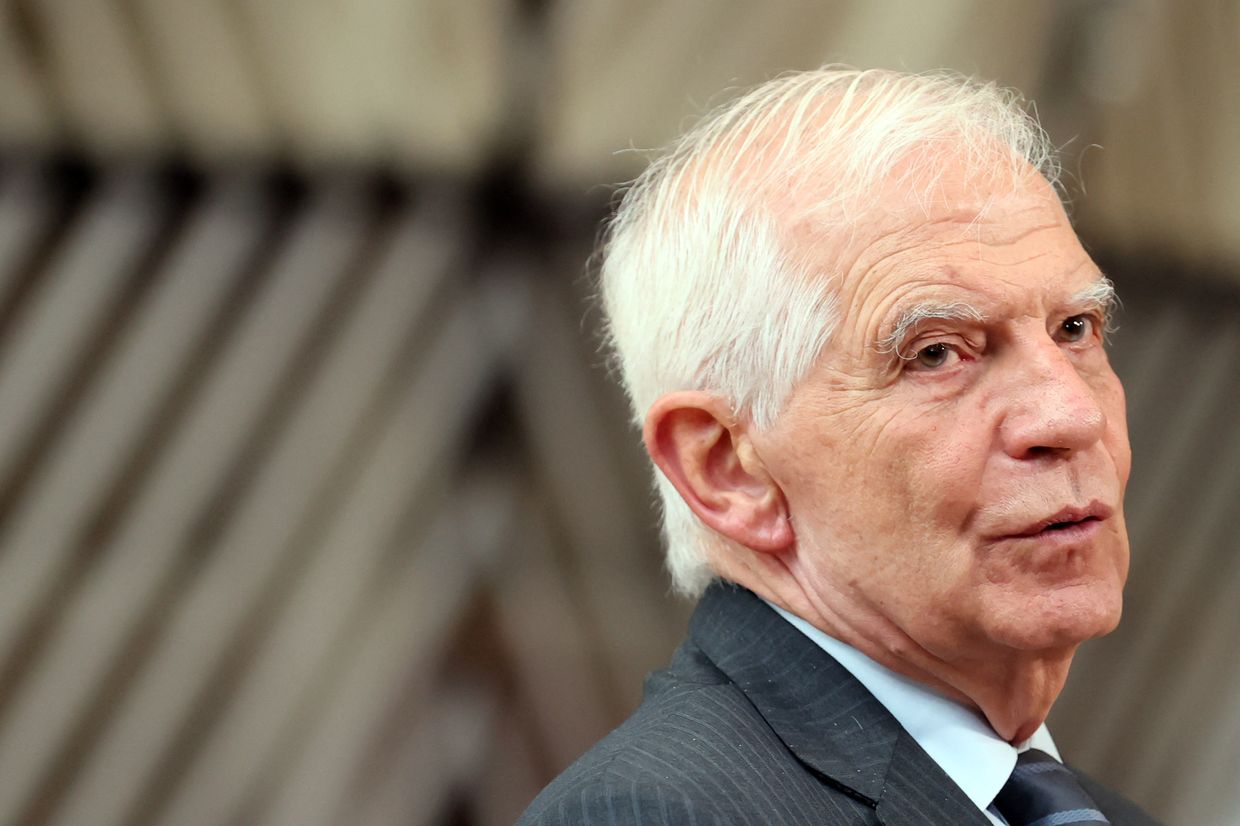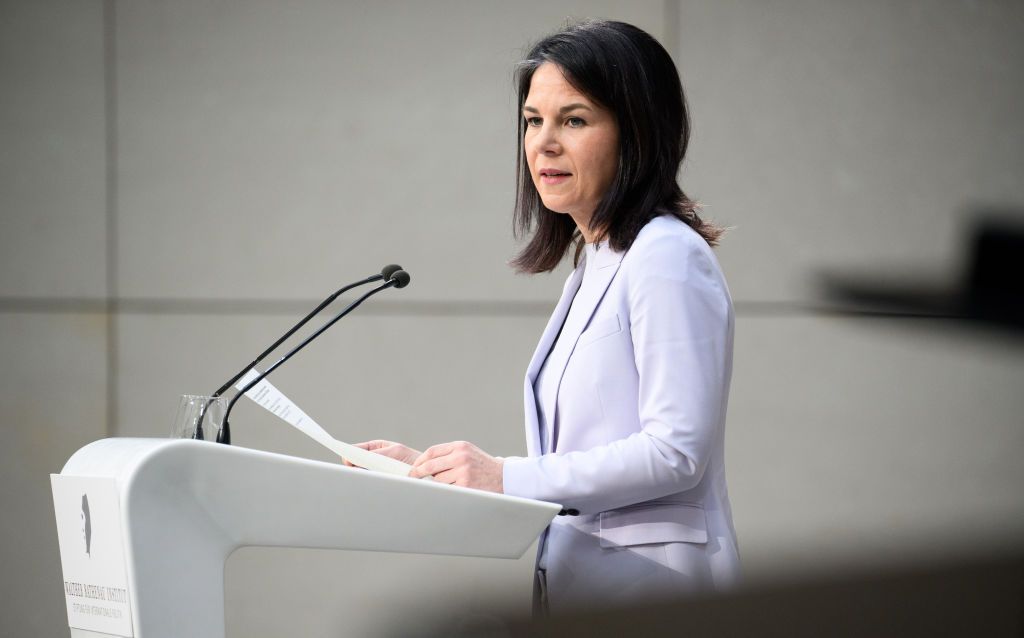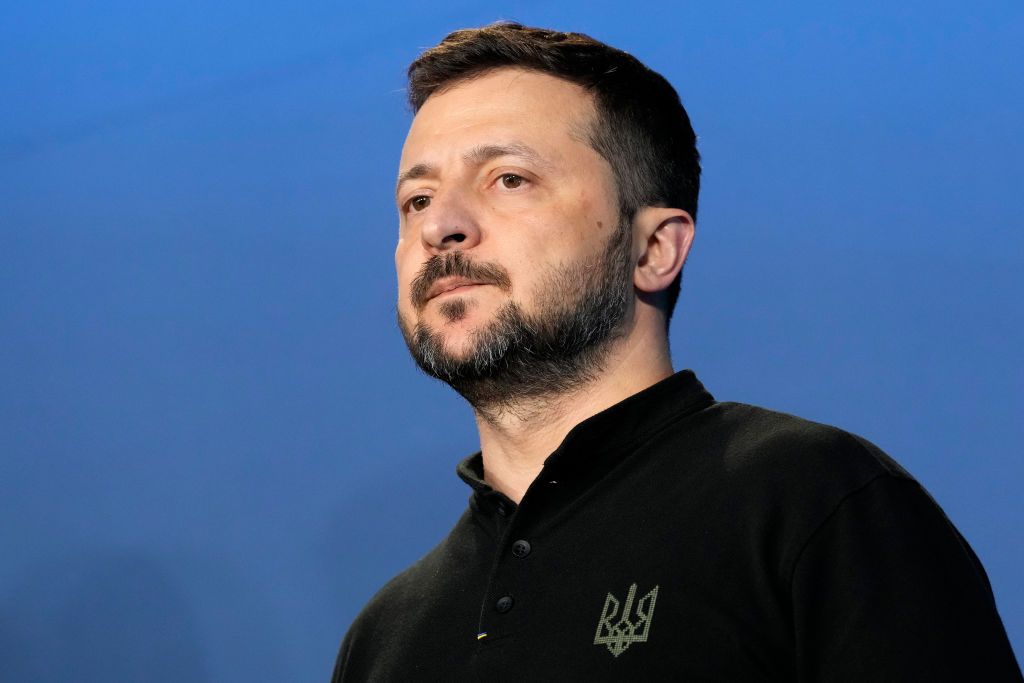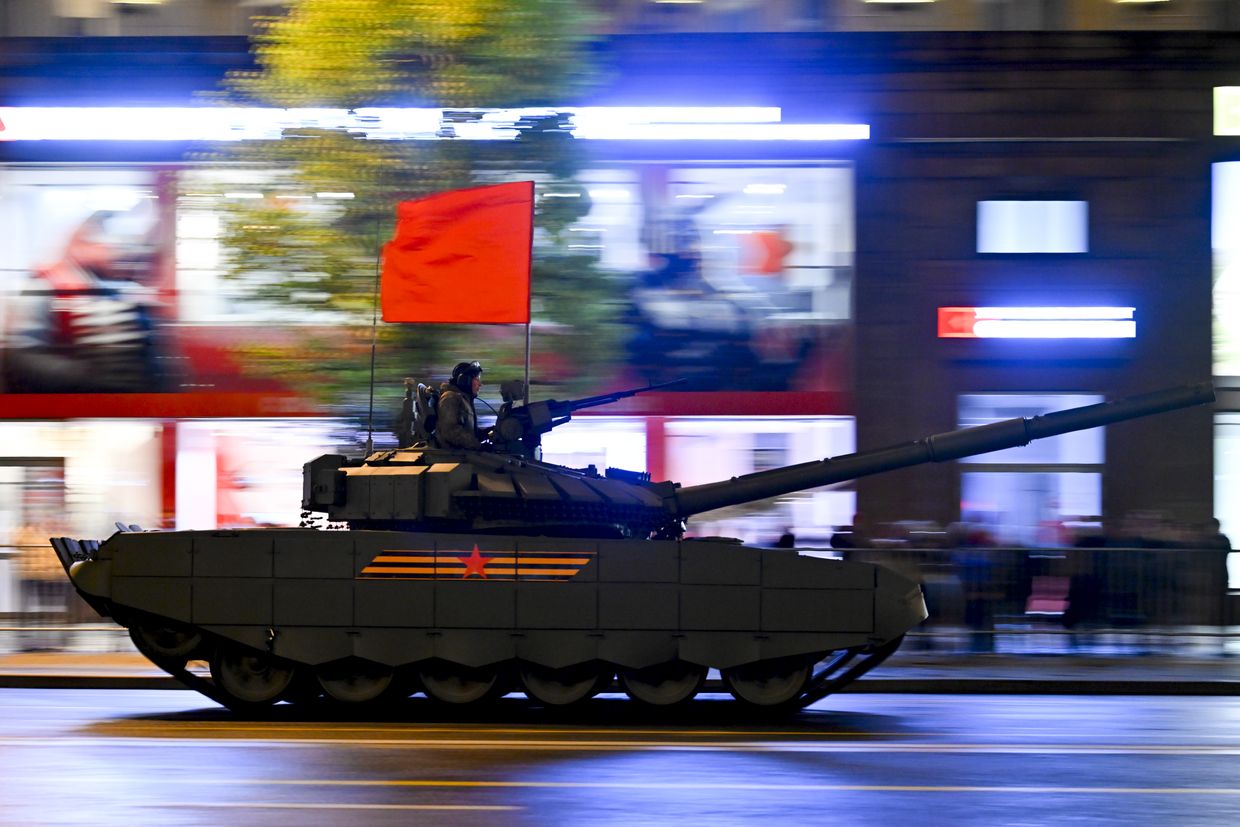"If they speak to each other in Russian, he doesn't know what they are saying," one Western official told NBC News. ichael McFaul, former U.S. ambassador to Russia, called Witkoff's approach "a very bad idea."
Tougher sanctions "should be applied to (Russia's) banking and energy sectors, targeting fossil fuels, oil, and the shadow fleet," the leaders of Ukraine, the U.K., France, Germany, and Poland said in a joint statement.
"Russia is ready for negotiations without any preconditions," Putin claimed in an address marking the end of the three-day Victory Day ceasefire. He invited Ukraine to begin talks in Istanbul on May 15.
The American-made weapons cannot be exported, even by a country that owns them, without approval from the U.S. government.
While serving as a bishop in Peru, Robert Prevost, now Pope Leo XIV, called the full-scale war "a true invasion, imperialist in nature, where Russia seeks to conquer territory for reasons of power.”
Speaking to CNN on May 10, Peskov commented on the latest ceasefire proposal from Ukraine and Europe, responding that Russia needs to "think about" it, but is "resistant" to pressure.
Speaking at a press conference in Kyiv on May 10, President Volodymyr Zelensky rebuked the idea of a demilitarized zone in the war and emphasized the importance of first securing a ceasefire.
"We agreed that a full and unconditional ceasefire must begin on Monday, May 12, for at least 30 days. We jointly demand this from Russia, and we know we are supported in this by the United States," Zelensky said.
The announcement follows mounting fears that the two nuclear-armed countries were on the brink of engaging in another full-scale war.
Ukrainian media outlet ZN.UA reported on May 10 that their law enforcement sources confirmed an ongoing probe by the National Anti-Corruption Bureau into suspected embezzlement, money laundering and bribery.
Iran is preparing to send Russia Fath-360 short-range ballistic missile launchers, Reuters reported on May 9, citing Western security and regional officials familiar with the matter.
"Ukraine and all allies are ready for a complete unconditional ceasefire on land, in the air, and at sea for at least 30 days, starting as early as Monday," Ukraine's Foreign Minister Andrii Sybiha wrote.
Borrell confirms US authorization for Ukraine to strike deep into Russia with missiles up to 300 km in range

Editor's note: This story is being updated.
The U.S. has authorized Ukraine to strike military targets deep inside Russian territory, the European Union's top diplomat Josep Borrell confirmed on Nov. 18 following a meeting of EU foreign ministers in Brussels.
"The Biden administration has authorized the use of its weapons up to 300 kilometers inside Russian territory," he said. "The American administration said no for a long time, and they ended up saying yes."
Several media outlets reported on Nov. 17 that U.S. President Joe Biden permitted Ukraine to use its ATACMS missiles to strike against targets on Russian soil. According to some reports, this so far concerns only Russian and North Korean forces amassing in Russia's Kursk Oblast.
Kyiv and Washington did not provide a clear statement on whether the authorization to strike deep into Russia with US-made missiles was granted. Borrell was the first official to confirm the move.
Answering the question of why Joe Biden's administration decided to authorize long-range strikes against Russia now, Borrell said he did not know why the White House made this decision after the presidential election and not before.
Borrell also confirmed that this permit was indeed granted and is spread over a distance of 300 kilometers (187 miles).
"It's not that much by way of a distance. It's not a very long distance. It doesn't go deep into the country, but this is the decision by the administration," the diplomat said.
"I think it's reasonable to provide arms, not just to stop the arrows, but also to fight the bowmen," Borrell added.
The diplomat also highlighted that in the EU, each country makes its own decisions on the use of its weapons by Ukraine.
Biden has been long adamant about not allowing Western-supplied weapons to be used on Russian soil, fearing an escalation. He first eased the restrictions in May to allow Ukraine to use certain weaponry like HIMARS to strike at Russian troops just across the border in the wake of the Kharkiv offensive.
Unnamed U.S. officials, as well as a source familiar with the decision, who spoke to Reuters, said that Kyiv plans to conduct its first long-range strikes in the coming days.
As the decision came in the last months of Biden's term in office, it remains unclear whether Trump will uphold the policy after he returns to the White House.

Most Popular

After 3 years of full-scale war in Ukraine, Europe announces plan to ban all Russian gas imports

Journalist Roshchyna's body missing organs after Russian captivity, investigation says

Ukrainian sea drone downs Russian fighter jet in 'world-first' strike, intelligence says

'Justice inevitably comes' — Zelensky on deaths of high-ranking Russian officials

Kremlin says Russia ready for mass mobilization like in WWII 'at any moment'
Editors' Picks

How medics of Ukraine’s 3rd Assault Brigade deal with horrors of drone warfare

As Russia trains abducted children for war, Ukraine fights uphill battle to bring them home

'I just hate the Russians' — Kyiv district recovers from drone strike as ceasefire remains elusive


